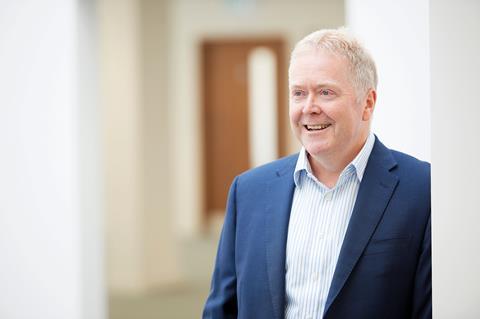- News

All the latest updates on building safety reformRegulations latest
- Focus
- Comment
- Programmes
- CPD
- Building the Future
- Jobs
- Data
- Subscribe
- Events

2024 events calendar
Explore now
Building Awards
Keep up to date
- Building Boardroom
In business with Galliford Try’s Bill Hocking: ‘There are some things that just have to carry on’

The talk is of the longest recession in 100 years but for all that, Galliford Try chief executive Bill Hocking cannot contain his optimism. Dave Rogers went to meet him

“I think we had a five-minute discussion for good governance, and that was pretty much it.” Bill Hocking, the chief executive of Galliford Try, is talking about the process behind the move to hand more than half of the firm’s 3,500 staff a cost-of-living payment totalling £1m in September. More than 1,800 of them were given a one-off payment of £750, which, together with a reward scheme, meant some employees received an extra £1,000 in their October pay packets.
“£750 will be a lot for some and not a lot for others, but it was the right thing to do,” Hocking says. “We support a local food bank out of here [the firm’s main office is on a business park in Uxbridge on the outskirts of north-west London] and I’d noticed that demand for it was going up. It got me thinking. You hear stories about hard-working people struggling to make ends meet, and I thought: we’ve got to do something about that.”
Following the news, he received dozens of appreciative emails from staff whom he had never met. “It was a pretty heart-warming response, actually.” He seems slightly taken aback. “I hate this thing that people are having to choose between heat or food; that’s just appalling, and especially for kids. Can you imagine that? Choosing between putting the heating on or feeding your kids?”
…
This content is available to REGISTERED users
You are not currently logged in.
LOGIN or REGISTER to access this story

LOGIN or REGISTER for free access on selected stories and sign up for email alerts.
Take out a print and online or online only subscription and you will get immediate access to:
- Breaking industry news as it happens
- Expert analysis and comment from industry leaders
- Unlimited access to all stories, including premium content
- Full access to all our online archive
Get access to premium content subscribe today

















